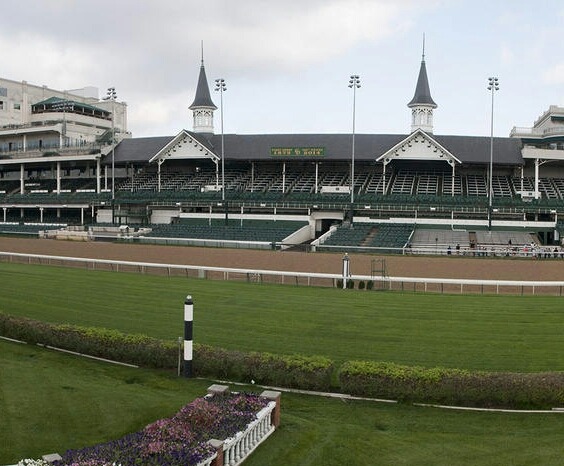
Also named in the Baffert Federal lawsuit against Churchill Downs are CDI chief executive Bill Carstanjen and board chairman Alex Rankin
Bob Baffert seeks to negate a two year ban keeping him and his horses out of the Kentucky Derby and Kentucky Oaks through a Federal Lawsuit filed in Kentucky’s Western District
Could the Graded stakes status of the Kentucky Derby be in question
Trainer Bob Baffert has filed a Federal Lawsuit against Churchill Downs et al alleging a rush to judgement, ignoring facts, and a lack of due process. The lawsuit addresses conflicts of interest with the KHRC ruling, the denial of a stay pending appeal, why Churchill Downs should not enjoy the private property benefit in instituting bans, that a rule might not have been violated and the punishment might not fit the crime so to speak, if there was even an infraction that occurred. We often rush to judgement and allow media and opinions and biases to decide how we feel for us. Courts are supposed to rule and decide cases by facts and evidence.
In reality if you wish to follow this case you can only do so by reading the lawsuit, the answer to it when filed, and the pleadings and discovery along with the depositions as they come in. You can’t follow it on social media or through the media. You get others takes and not facts. The facts are in the details of the case.
There is one aspect of the case we found particularly interesting. The suit references the graded stakes status of the Kentucky Derby as it is technically at this point a restricted race. Nobody was talking about that point until we wrote about it HERE. That is not to suggest the Bob Baffert legal team which includes both Craig Robertson and Clark Brewster among others did not know about this point, we would venture to believe they did, far better than us, but the fact remains nobody spoke towards it prior to our article and we feel it is a valid question the graded stakes committee should address. It appears the language of the Churchill Downs ban conflicts with the restricted race language of the graded stakes committee.
The following is from the Bob Baffert Federal Lawsuit against Churchill Downs:
24. Horse races are “graded” by the American Graded Stakes Committee of the Thoroughbred Owners and Breeders Association based on a number of criteria that reflect the importance of the race and the quality of the horses involved. Races are often delineated as Grade 1, Grade 2, and Grade 3 races, with Grade 1 being the most prestigious. Grading races is to provides a reference point for a particular horse’s value based on its success in a given race. A horse’s record in graded races likewise determines the value of the horse’s progeny in the breeding market for Thoroughbred racehorses. In the words of the Thoroughbred Owners and Breeders’ Association, “Horses winning these graded races may reliably be considered as superior racing stock, and the breeding stock producing them as superior breeding stock.”2 The Kentucky Derby has historically been a prototypical Grade 1 stakes race.
25. The grading procedure is subject to strict criteria that make certain types of races ineligible for grading. One such ineligible race is a “restricted race.” As the American Graded Stakes Committee has explained,
Races will be ineligible for grading if conditions for competing in them include restrictive provisions relative to which horses may enter, other than by sex or age. A race is regarded as a restricted race if any of its conditions for entry would tend to exclude better horses while allowing participation by lesser horses. 3Changing which horses are eligible for a given race is a ground to reconsider and revoke that race’s graded status.
158. Similarly, Defendants’ exclusion was not taken for the benefit of CDI, the Kentucky Derby, or its brand, and it has no pro-business justification. Defendants’ exclusionary conduct expressly prohibits horses from competing in the Kentucky Derby solely based on the identity of the person who trained them. This eligibility restriction makes the Kentucky Derby and Kentucky Oaks “restricted” races as that term is defined by the American Graded Stakes Committee. Because a restricted race is ineligible for grading at any level, CDI’s actions have jeopardized the integrity of its brand, subjected the Kentucky Derby to possible revocation of any graded status, and placed an asterisk on the winner of any Kentucky Derby in which Baffert-trained horses are prohibited from competing.
The following is the language of the Churchill Downs ban:
Effective Sept. 30, 2021, points from any race in the Road to the Kentucky Derby or Kentucky Oaks will not be awarded to any horse trained by any individual who is suspended from racing in the 2022 Kentucky Derby or 2022 Kentucky Oaks or any trainer directly or indirectly employed, supervised, or advised by a suspended trainer. Should a horse trained by a suspended trainer, or any trainer directly or indirectly employed, supervised, or advised by a suspended trainer, finish in a position that would have earned points in a Road to the Kentucky Derby or Kentucky Oaks race occurring after Sept. 30, 2021, the points associated with that finish position will be vacated.
Churchill Downs, CDI
Following is another point in the lawsuit we found interesting and troubling:
139. CDI’s purported justifications for excluding Baffert because of so-called “reckless practices” and “record of testing failures” are pretextual: a. CDI permits trainers who have markedly higher rates of medication positives, have positives involving far more dangerous medications, have higher rates of horse fatalities to race on their grounds, and have been suspended by the Racing Commission.
b. CDI has suspended no one besides Baffert for any medication violation.
c. CDI’s purported intolerance for medication violations belies its historical and present practice of looking the other way when more severe medication violations occur on their grounds, including by trainers retained by CDI directors, officers, and their family members
Is Churchill Downs private property?
The property was leased by CDI from the city and they are listed as a tenant through December 31st, 2032. The City of Louisville currently has title to the property. Does Churchill Downs as a tenant enjoy the right to ban people under private property laws from a property owned by the City of Louisville? It is an interesting legal question. If the answer is no, the rights to due process which are already important in our society would seem to be essential prior to any penalty.
Another interesting point from the lawsuit:
73. The Racing Commission approved CDI’s nominee, Tyler Picklesimer, as the third steward for the Kentucky Derby. Picklesimer is the racing director at Turfway Park, a CDI property. He is a CDI employee compensated by CDI.
102. The adjudicative process in Kentucky is comprehensive. When the stewards suspect a violation, they provide the horse’s trainer and owner with notice of the suspected violation and inform them of their right to an evidentiary hearing before the stewards. 810 KAR 9:010 Section 1(3). After that hearing, Baffert is entitled not only to an administrative adjudicatory appeal before the Kentucky Horse Racing Commission but also to subsequent appeals to courts of law prior to any final determination concerning his Kentucky license or MEDINA SPIRIT’s status as the winner of the Kentucky Derby. 810 KAR 9:010 Section 1(9) & Section 4.
Mr. Picklesimer was one of the people ruling on the Medina Spirit positive, both at the track and for the KHRC hearing.
Obviously this is a complicated case, and the facts are not as simple as many believe. That is without even considering the betamethasone debates. What is also obvious is we need better rules, better leadership, more focus on what is best for the horses and not the bank accounts, handle, etc. We need consistency and not scapegoats and selective enforcement.
The entire lawsuit can be found here:
Bob Baffert Federal Lawsuit against Churchill Downs et al





